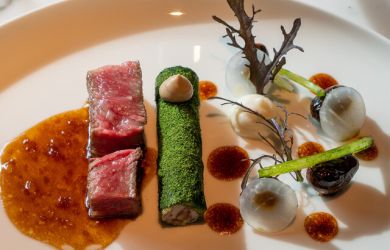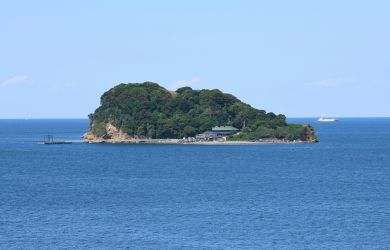
August 1, 2013
Zero Sum Games
The 2020 Olympics are Tokyo’s to lose after problems in Istanbul and Madrid
By Metropolis
Originally published on metropolis.co.jp on August 2013

Only in Tokyo could you rent a cat by the hour and stroke it Dr. Evil-style while a robot cooks noodles for you. Japan has made staggering progress since its capital last hosted the Olympics in 1964 when the government unveiled the Bullet Train to mark its emergence as an economic power.
Stop me if I’m boring you. Because you can bet your mortgage that well-worn line won’t wash with International Olympic Committee (IOC) members when they tick their boxes in Buenos Aires on September 7 to decide who hosts the 2020 Games.
…Or at least it wouldn’t have had the recent Istanbul riots not put the Turkish bid in peril.
No longer the “exotic” destination of yesteryear, Tokyo’s economic might and super-duper plan looked set to be trumped by mad-for-it Istanbul. The blazer and cravat crew from the IOC were almost tasting the gins and tonic they’d have while surveying the breathtaking views over the Bosphorous. “What’s that you say? Your marathon would begin in Europe and finish in Asia?”
A lovely narrative. It certainly beat those of staid old Tokyo and poor Madrid (“Lend us a few bob to mend our knackered economy, eh, amigo?”).
I visited Madrid and Istanbul for the IOC evaluation visits earlier this year and witnessed protesters in Madrid peacefully—if noisily—suggesting taxpayers’ money would be better spent elsewhere. Istanbul is indeed picturesque (and they do a lovely pastry)—but it clearly faces an enormous task with its infrastructure. The bid team already had issues trying to justify a whopping budget of $16 billion—almost four times that of Tokyo—and solve the city’s horrendous transport problems. Refugees flooding over the border from civil war in neighboring Syria hardly helped Istanbul’s cause.
And that was before police began firing rubber bullets, tear gas and water cannons at people demonstrating the development of a city park.
Meanwhile, all remains tranquil in Tokyo. Many of the iconic structures built for the 1964 Olympics, such as the elliptical national gymnasium, are still in use and as stunning in appearance now as they were almost half a century ago. Blade Runner-style neon lights, crowded trains, and crazy shops still retain the ability to amaze. More than anything else, it’s quite simply a safe pair of hands.
And what’s not to love about it? Everything works. It has turned convenience into an art form with automated wizardry. Vending machines dispense everything from bananas to underwear. Japan boasts the highest number of machines per capita and even has contraptions at the top of Mt. Fuji. Just in case you lose your knickers on the summit.
Visitors may worry about earthquakes, with horrific images of the devastating tsunami seen all around the world. Tokyo’s Olympic venues would be built on giant shock absorbers to withstand major tremors. Many stereotypes about Tokyo are shattered long before travellers have figured out the sensor light switches and bath taps in their room. Morning trains will gross out many as they rattle to sports venues, faces pressed against steamy windows, or worse.
But having tiptoed into the race following the 2011 tsunami and nuclear crisis, Tokyo is now the bookmakers’ favorite to win it—a victory that would be almost by default. Surely the only way to screw it up is if a politician were to say something dumb and inflammatory…
Have something to say about this story? Share your comments below.





